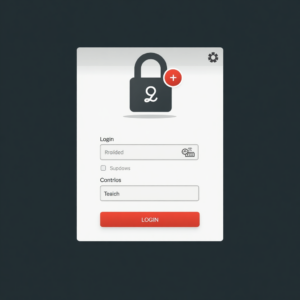
Introduction to CodeIgniter Security
CodeIgniter is a popular PHP web framework used for building dynamic web applications. As with any web application, security is a top concern for enterprises that use CodeIgniter. In this article, we will explore the top security solutions for enterprise-level CodeIgniter applications.CodeIgniter provides a robust framework for building secure web applications, but it is the developer’s responsibility to ensure that the application is properly secured. This includes protecting against common web application vulnerabilities such as SQL injection, cross-site scripting (XSS), and cross-site request forgery (CSRF).
Input Validation and Sanitization
One of the most important security measures for CodeIgniter applications is input validation and sanitization. This involves checking and cleaning user input to prevent malicious data from entering the application. CodeIgniter provides a range of built-in functions for input validation and sanitization, including the $this->input->post() and $this->input->get() functions.Developers can also use third-party libraries such as Form Validation to simplify the input validation process. Additionally, developers should always validate and sanitize user input on the server-side, even if client-side validation is also used.

Authentication and Authorization
Proper authentication and authorization are critical for securing CodeIgniter applications. This involves verifying the identity of users and ensuring that they have the necessary permissions to access certain resources. CodeIgniter provides a range of built-in functions for authentication and authorization, including the $this->session->userdata() function.Developers can also use third-party libraries such as Ion Auth to simplify the authentication process. Additionally, developers should always use secure protocols for authentication, such as SSL/TLS, to protect user credentials.
SQL Injection Protection
SQL injection is a common web application vulnerability that involves injecting malicious SQL code into an application’s database. CodeIgniter provides a range of built-in functions for protecting against SQL injection, including the $this->db->query() function.Developers can also use prepared statements to prevent SQL injection. Prepared statements separate the SQL code from the user input, making it impossible for an attacker to inject malicious SQL code.
Cross-Site Scripting (XSS) Protection
Cross-site scripting (XSS) is a common web application vulnerability that involves injecting malicious JavaScript code into an application. CodeIgniter provides a range of built-in functions for protecting against XSS, including the $this->input->post() and $this->input->get() functions.Developers can also use output encoding to prevent XSS. Output encoding involves encoding user input to prevent it from being executed as JavaScript code.
Cross-Site Request Forgery (CSRF) Protection
Cross-site request forgery (CSRF) is a common web application vulnerability that involves tricking a user into performing an unintended action. CodeIgniter provides a range of built-in functions for protecting against CSRF, including the $this->session->userdata() function.Developers can also use CSRF tokens to prevent CSRF. CSRF tokens involve generating a random token for each user session and validating it on each request.
File Upload Security
File uploads are a common feature of many web applications, but they can also pose a security risk if not properly secured. CodeIgniter provides a range of built-in functions for securing file uploads, including the $this->upload->do_upload() function.Developers should always validate and sanitize file uploads to prevent malicious files from being uploaded. Additionally, developers should use secure protocols for file uploads, such as SSL/TLS, to protect user data.
Conclusion
In conclusion, securing a CodeIgniter application requires a range of measures, including input validation and sanitization, authentication and authorization, SQL injection protection, XSS protection, CSRF protection, and file upload security. By following these security best practices, developers can help protect their CodeIgniter applications from common web application vulnerabilities.CodeIgniter provides a range of built-in functions and features to help simplify the security process, but it is ultimately the developer’s responsibility to ensure that the application is properly secured. By taking the time to implement proper security measures, developers can help protect their users’ data and prevent malicious activity.

